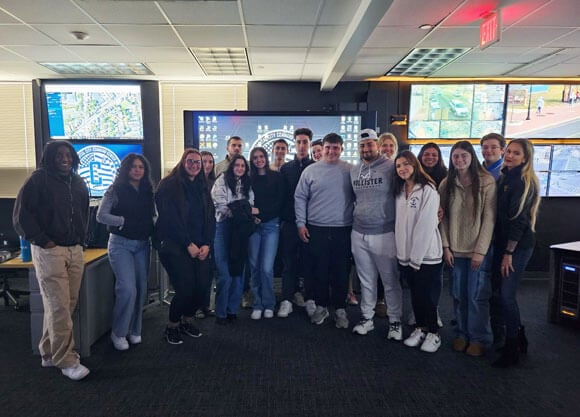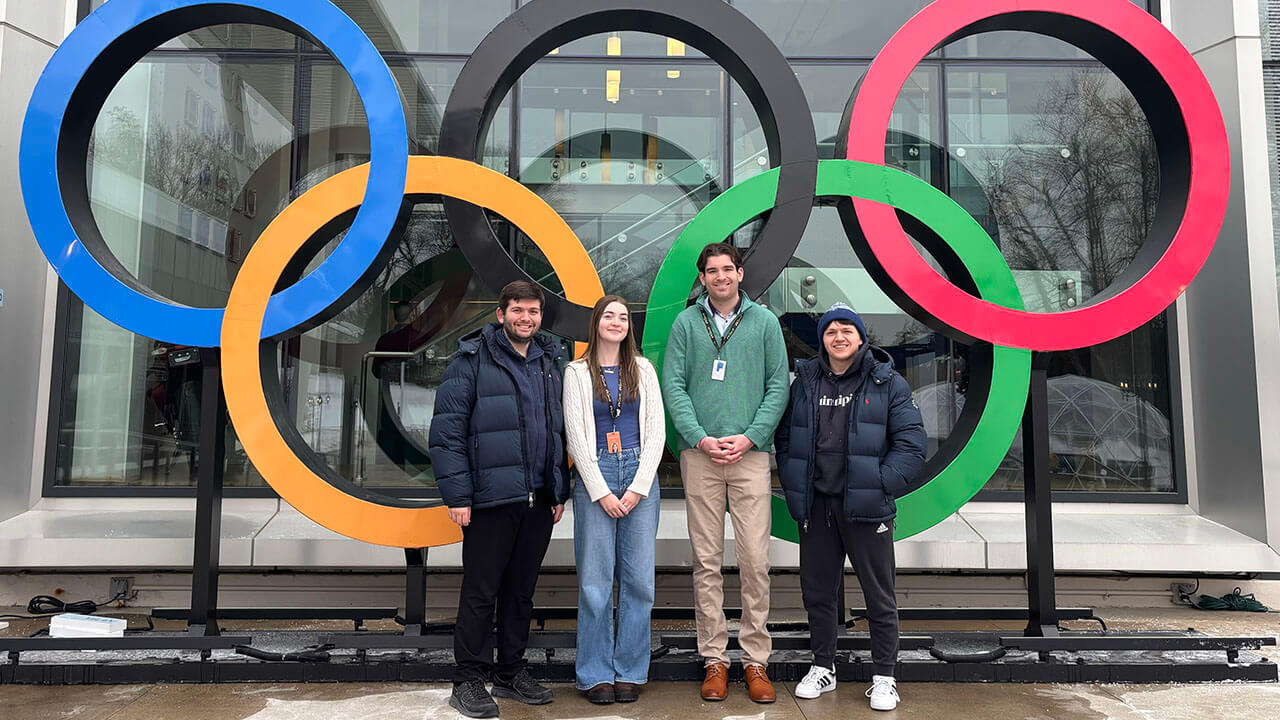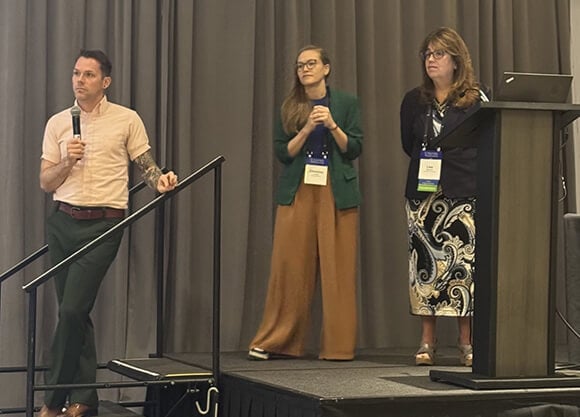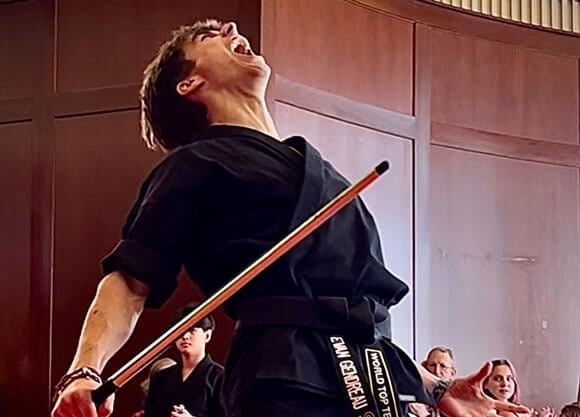
Students explore cutting-edge police technologies at Hartford’s C4 Center
December 02, 2024

December 02, 2024

The students who took part in the visit are all a part of the CJ 200 Police Technology course taught by Kimberly Przeszlowski, assistant professor of criminal justice.
The course explores how police technology is rapidly changing law enforcement in the U.S. while comparing advancements on a global scale.
Students analyze facial recognition and predictive policing by breaking down how such technologies affect privacy, ethics, civil liberties, and relationships between law enforcement and communities.
Przeszlowski explained that the experiential learning tour was designed to provide students with a practical and accessible understanding of the organizational and operational structure of real-time crime centers.
“While the media often highlights anecdotal successes, there is a limited number of empirical assessments available on these units—studies that students may find complex or intimidating to engage with,” said Przeszlowski. “By observing the center’s operations firsthand, the tour aimed to bridge this gap and empower students to critically assess the utility and challenges of these units through direct experience.”
During the visit, Przeszlowski explained that observed personnel responding to a gunshot detection system alert and coordinating efforts to locate the scene, while also witnessing investigators analyzing post-incident video footage and evidence in an active kidnapping case.
Additionally, Przeszlowski said “The C4 supervisor shared insights about building public partnerships and working collaboratively with the community, emphasizing the importance of transparency in fostering trust and accountability. By experiencing these operations firsthand, students were encouraged to challenge preconceived notions and develop an informed perspective on the effectiveness and broader implications of real-time crime centers in modern policing."
Przeszlowski shared some advice for students who are interested in pursuing careers that involve the integration of technology in policing.
“My advice is to approach this field with a deep understanding of its nuances. Technology can be a powerful tool for improving efficiency, solving crimes, and enhancing public safety. Still, it also comes with challenges, particularly in how it is perceived and experienced by the community,” she said.




Quinnipiac Today is your source for what's happening throughout #BobcatNation. Sign up for our weekly email newsletter to be among the first to know about news, events and members of our Bobcat family who are making a positive difference in our world.
Sign Up Now